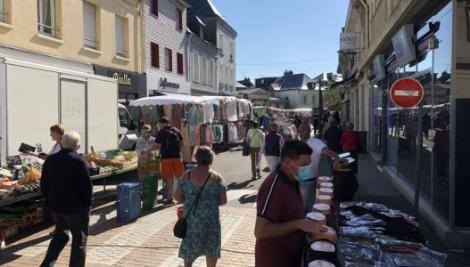Reconciling the needs of residents and environmental issues using behavioural science in Yvetot
May 2023
Agence nationale de la cohésion des territoires (ANCT)
Yvetot has taken part in a behavioural science study, the aim of which is to propose new ways of living to reconcile the needs and aspirations of residents with the challenges of reducing land consumption.
Yvetot was part of the dynamic that called on behavioural sciences to implement a « multi-stakeholder » policy to reduce land consumption. The Direction Départementale des Territoires et de la Mer has launched a support project in partnership with ACTELab, [S]City, the PNR des Boucles de la Seine Normande and the Communauté de Communes Yvetot Normandie (CCYN). Virginie Blandin, 1st Deputy Mayor for Town Attractiveness - Urban Planning - Housing - Neighbourhood Renewal - Local Staff, said: « Faced with the challenge of reducing the amount of land available, local councillors are in the front line and at the heart of the decision-making process for developing the forms of housing in the area. This study, based on meetings with all the players involved in development, offers a new approach and provides food for thought for elected representatives to encourage the emergence of housing that consumes less space, while meeting the needs of local residents ».

Yvetot has a population of around 12,500, and is an attractive town with a wide range of facilities, a wide variety of shops and a wide range of services. It occupies a central position in the Seine-Maritime department, between Le Havre and Rouen.
For a number of years, Yvetot has been developing initiatives linked to sustainable development; in particular, the municipality has adopted a resolution on the « climate emergency ».
The project
With the objective of Zero Net Artificialization, the study on the contribution of behavioural sciences offers keys to understanding the interplay of players and the decision-making processes that lead to the maintenance of the suburban model.
The distribution and type of housing in a given area depend on the following factors: the wishes of residents, whether tenants or homeowners, what is on offer in the area at the time of the choice, the structure of the area and the services available.
This area-based approach, carried out over 2 years, has opened up the possibility of questioning this practice, clarifying the needs of residents and ultimately identifying areas for action by elected representatives and those involved in Yvelines’ development.
Under this method, all the players were approached: private individuals, technical players (State/DDTM, CAUE/PNR, urban planning agency, EPF, consultancy firms), economic players, etc. The researchers first carried out an inventory, then conducted interviews, before distributing a questionnaire to residents and organising a focus group. In the final phase, elected representatives were invited to attend workshops.
It appears that the alternative of intermediate housing, which saves space, can meet the expectations of local residents and is suited to the rural environment. It takes the form of a grouping of limited superimposed dwellings (3 to 12 units), allowing individual access to the dwellings, private exteriors and the sharing of certain areas.
Intermediate housing allows for a greater mix and diversity of residents, which is better suited to the needs and aspirations of the elderly.
Objective
-
To use foresight to bring out new ideas in those involved in the housing sector and to respond to environmental issues.
Specificity
-
Support work carried out by a group of independent cognitive science researchers.
Sources
To go further
-
[a(https://agence-cohesion-territoires.gouv.fr/petites-villes-de-demain-45) agence-